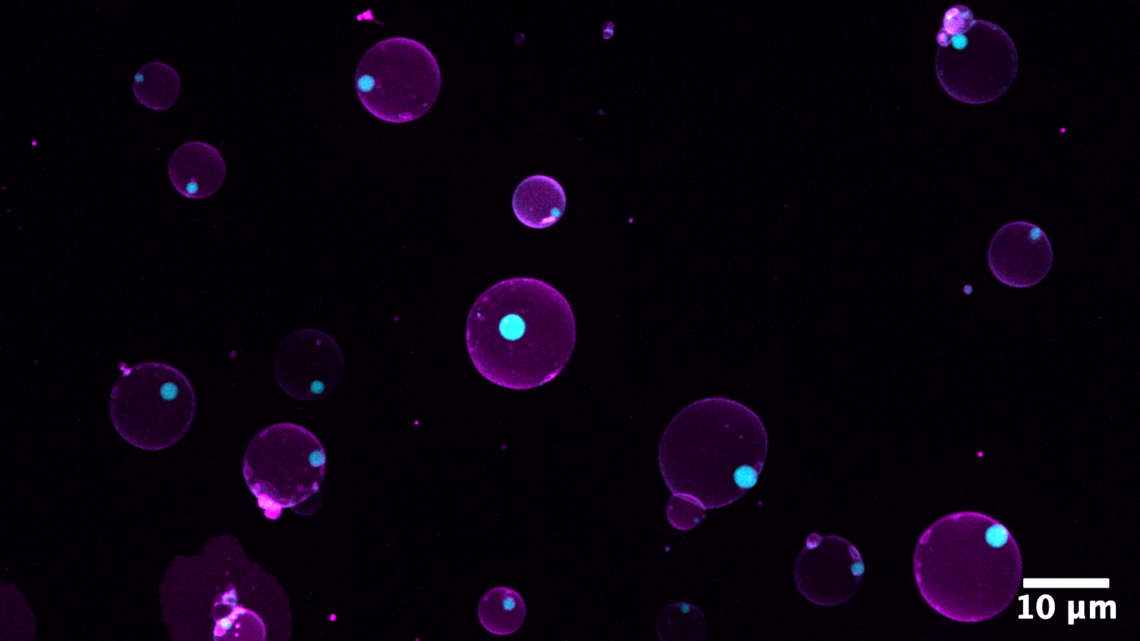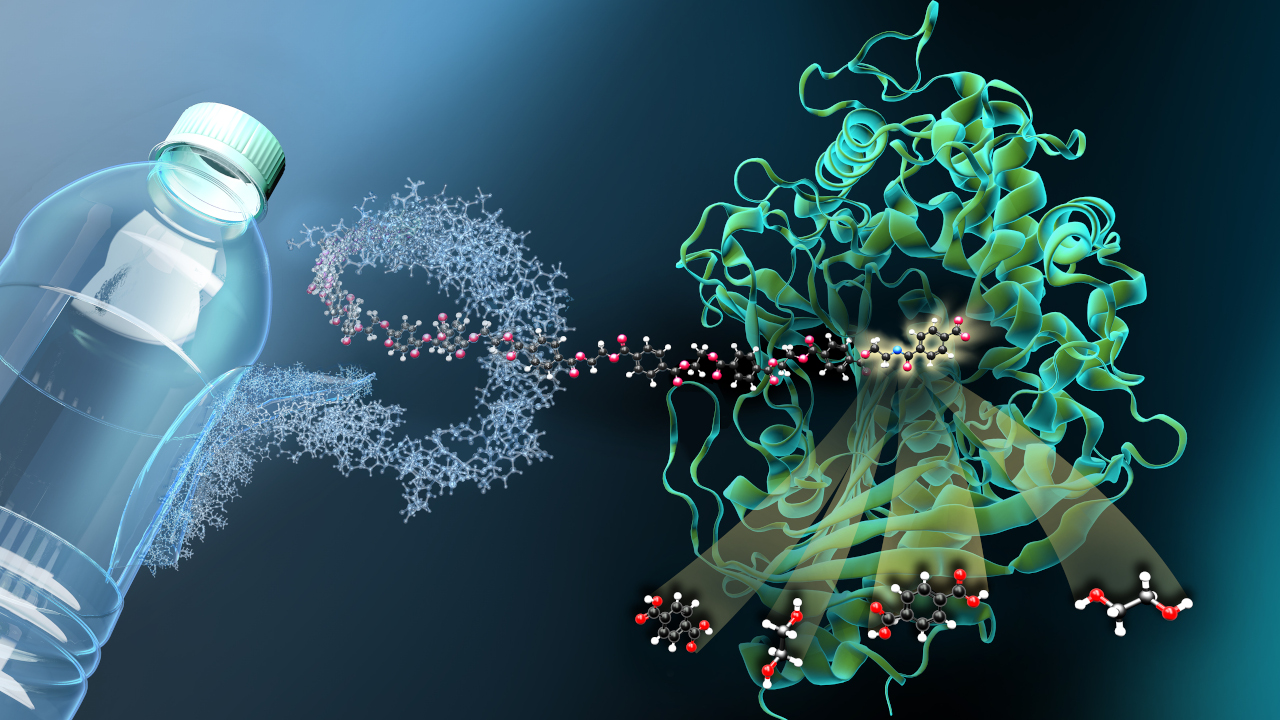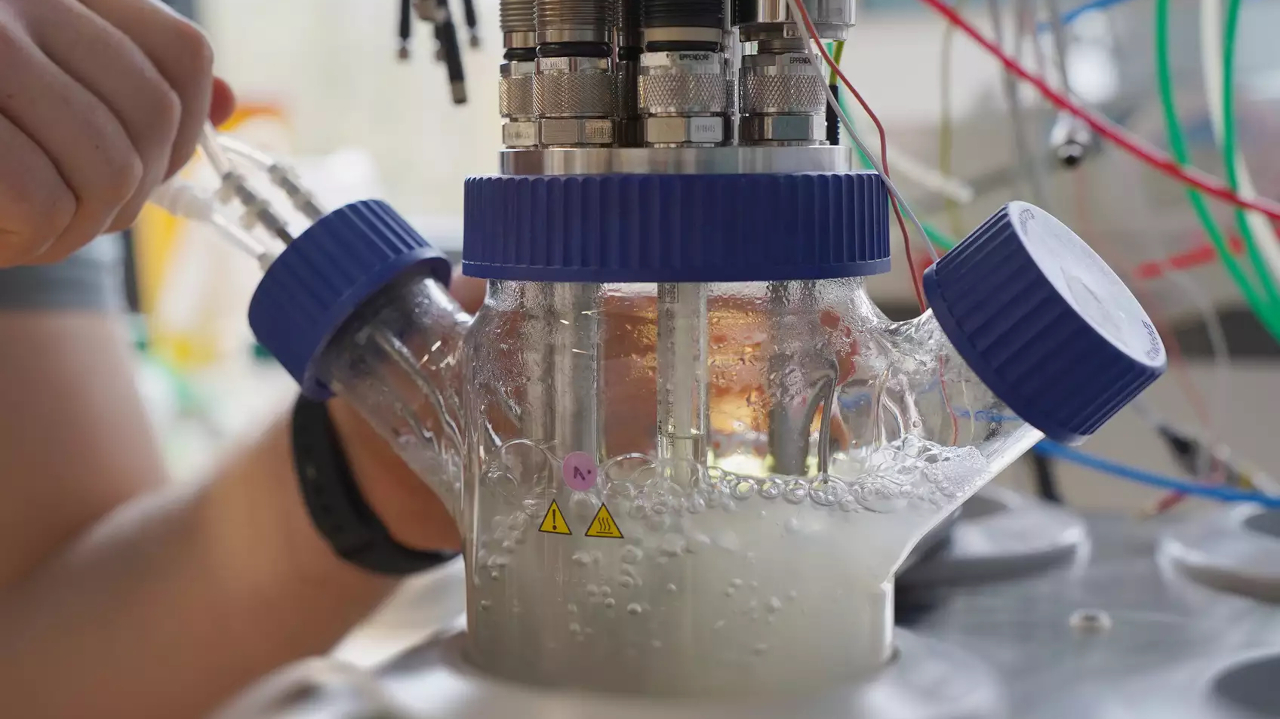Scientists build artificial cell
Max Planck researchers have created a synthetic cell that enables biochemical reactions and reacts to environmental influences.

The custom-made, minimalist cell that is viable but in which only selected processes take place is the dream of many researchers in the field of synthetic biology. It could be used to understand biological processes even better, but above all, it would be a valuable tool for biotechnology. Researchers at the Max Planck Institute of Molecular Cell Biology and Genetics in Dresden and the Max Planck Institute of Colloids and Interfaces in Potsdam have now taken an important step in this direction: they have created an artificial cell that has rudimentary organizational structures - so-called compartments.
Compartments enable targeted reactions
In order for biochemical processes to take place in a cell, the decisive reaction partners must be at the same place at the same time and under the right reaction conditions. This is why natural cells have different compartments, specific subspaces, in which the reactions take place. These compartments are usually limited by membranes, but there are exceptions.
Artificial cell reacts to changes in pH
The artificial cell of the Max Planck researchers has a large compartment with a membrane, in the interior of which membrane-free compartments exist. Depending on environmental factors, in this case the pH value, these subcompartments can form or dissolve again, as the team reports in the international edition of "Angewandte Chemie". "Just like our taste buds can let us experience tastes that are salty or sour, components inside a cell can also respond to the acidity of an environment," explains Celina Love, lead author of the study. "We found that by changing the pH of the environment, we can affect the behavior of molecules coming together and their ability to form sub-compartments." It had been particularly exciting to observe how chemical reactions could be switched on and off by changing the acidity level within the synthetic cell, the researchers said.
Answering basic metabolic questions
The significance for the field of synthetic biology is summarized by Dora Tang, head of the study: "Our work is a major step forward in the design of more complex synthetic cells that can mimic biological behaviors. This tunable synthetic system presents exciting possibilities in addressing fundamental questions in biology, such as how cells integrate a multitude and variety of signals from the environment to perform and tune basic cellular functions such as metabolism."
The project was part of the MaxSynBio research network, in which nine Max Planck Institutes are involved and which has been funded by the Federal Ministry of Education and Research since 2014. The current second funding period ends in July 2020.
bl/um


